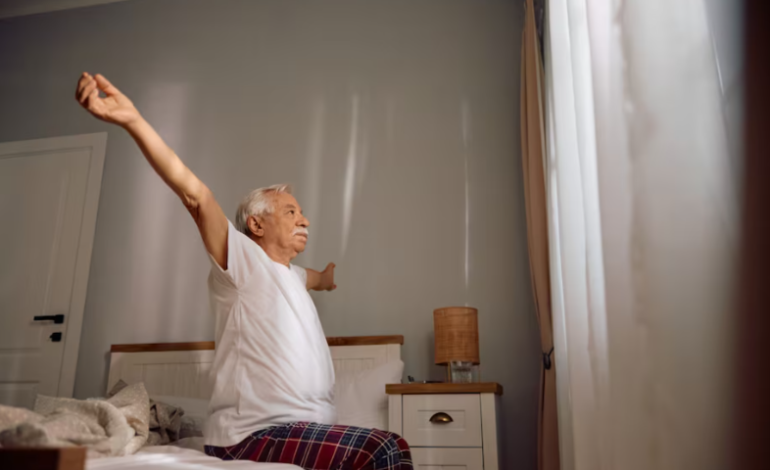As people get older, sleep often becomes more elusive. Research shows that up to half of older adults experience sleep difficulties, which translates to around 27 million Americans aged 65 and older, the Washington Post reports.
Many factors, including health conditions, medication side effects, and changes in circadian rhythms, can disrupt sleep patterns. Experts suggest that developing good sleep habits and consulting healthcare providers when necessary can improve rest.
Dr. Brienne Miner, a geriatric and sleep medicine specialist at Yale Medicine, explains that after age 50, individuals often experience more frequent interruptions during sleep. This can lead to lighter, less restorative sleep and a reduction in both deep and rapid eye movement (REM) sleep. Despite these changes, adults over 65 still need six to eight hours of sleep per night — the same as younger adults.
Sleeping too little or too much can signal underlying health issues. Miner emphasizes that maintaining a healthy lifestyle, including regular exercise and consistent sleep schedules, is key to promoting better sleep.
Factors That Disrupt Sleep
- Health Conditions
Chronic conditions like arthritis, heart disease, and diabetes can make it harder to get a good night’s rest. Conditions such as acid reflux may require adjustments, like elevating the head of the bed. - Medication Side Effects
Many older adults take multiple prescription medications, some of which can disrupt sleep. These include asthma treatments, decongestants, and certain blood pressure medications. Experts recommend speaking with healthcare providers to explore possible adjustments or alternatives. - Lifestyle Factors
Alcohol and caffeine consumption, irregular sleep schedules, and lack of physical activity can also hinder sleep quality.
Sleep disturbances that impact daily functioning warrant medical attention. Specific symptoms to discuss with a healthcare provider include:
- Snoring or pauses in breathing
- Nighttime coughing or gasping
- Frequent urination
- Leg discomfort that disrupts sleep
- Anxiety or racing thoughts
- Acting out dreams
Conditions like restless legs syndrome (RLS) often worsen with age and may require lifestyle changes or medication. Experts caution against long-term use of sedatives like Ambien and Lunesta due to their potential side effects.
Many experts recommend exploring alternative methods to improve sleep:
- Dietary Changes: Foods like pistachios, tart cherries, and kiwifruit may support sleep due to their antioxidant content.
- Supplements: Melatonin, magnesium, and valerian root have been suggested, but it’s essential to consult a doctor first.
- Mind-Body Therapies: Yoga, meditation, and mindful breathing can help manage racing thoughts and promote relaxation.
- Environmental Adjustments: Using room-darkening curtains, maintaining a cooler bedroom temperature, and incorporating essential oils like lavender may enhance sleep.
Amy Goyer, AARP’s caregiving expert, highlights the benefits of meditation and acupuncture based on her personal experience caring for her father, who had Alzheimer’s disease. She found these practices to be beneficial for both his sleep and her own stress levels.










The latest news in your social feeds
Subscribe to our social media platforms to stay tuned